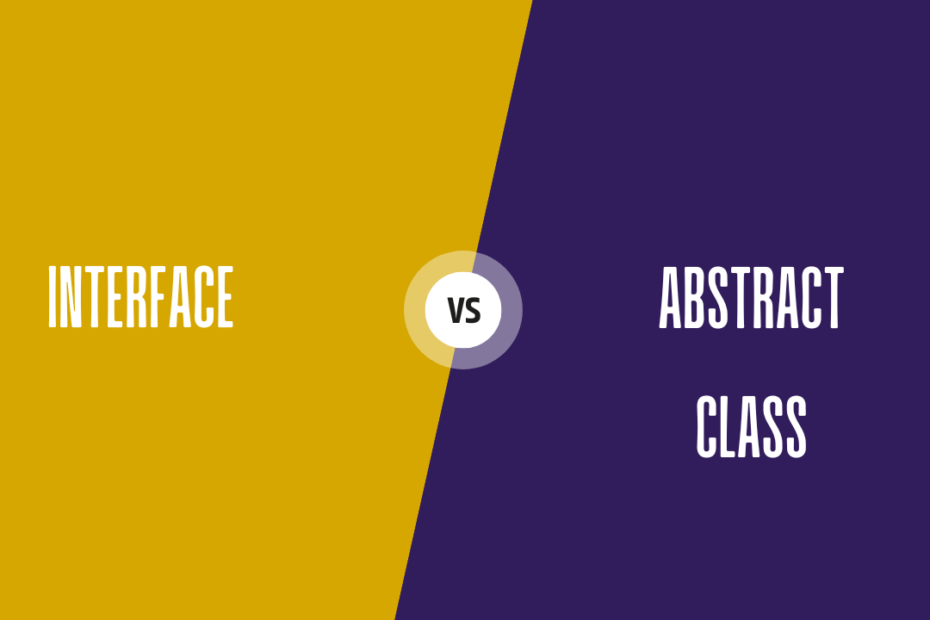In C#, both interfaces and abstract classes are used to define common contracts and provide a level of abstraction for classes that implement or inherit from them. However, there are significant differences between the two in terms of their purpose, features, and usage. Let’s explore the key difference between interface and abstract class in C#:
Difference Between Interface and Abstract Class in C#
Interfaces:
- Purpose:
- An interface defines a contract that a class must adhere to. It declares a set of methods, properties, events, or indexers without providing any implementation details. It defines what a class should do but not how it should do it.
- Inheritance:
- A class can implement multiple interfaces. This means that a single class can be associated with multiple contracts, enabling it to provide various behaviors.
- Members:
- An interface can only declare method signatures, properties, events, and indexers, along with their access modifiers and return types. It cannot include fields or method bodies.
- Access Modifiers:
- Interface members are implicitly public and cannot have access modifiers (e.g.,
public,private, etc.). All members of an interface are assumed to be public and must be implemented as such in the implementing class.
- Interface members are implicitly public and cannot have access modifiers (e.g.,
- Use Case:
- Interfaces are useful when you want to ensure that different classes provide certain functionality without enforcing a specific class hierarchy. It enables loose coupling and supports polymorphism.
- Example:
public interface IAnimal
{
void Speak();
void Move();
}This interface defines two methods, Speak() and Move(), that any class that implements this interface must implement.
Abstract Classes:
- Purpose:
- An abstract class is a class that cannot be instantiated directly. It is meant to serve as a base class for other classes. It can contain abstract and non-abstract (concrete) methods, properties, fields, events, and indexers.
- Inheritance:
- A class can inherit from only one abstract class, as C# does not support multiple inheritance for classes. Inheriting from an abstract class establishes an “is-a” relationship.
- Members:
- An abstract class can include both abstract and concrete members. Abstract members are declared without an implementation (using the
abstractkeyword), and concrete members have complete implementation.
- An abstract class can include both abstract and concrete members. Abstract members are declared without an implementation (using the
- Access Modifiers:
- Abstract classes can have different access modifiers for their members, allowing more fine-grained control over member visibility within the class hierarchy.
- Use Case:
- Abstract classes are useful when you want to provide a common base implementation for a group of related classes. They allow you to define common behavior and characteristics that subclasses can inherit and override.
- Example:
public abstract class Animal
{
public abstract void Speak();
public abstract void Move();
}This abstract class defines two methods, Speak() and Move(), that any class that inherits from this class must implement. However, this abstract class also provides concrete implementations for some methods, such as the ToString() method.
Comparison Chart
Sure, here is the key difference between interface and abstract class in C#:
| Feature | Interface | Abstract Class |
|---|---|---|
| Definition | An interface is a contract that defines a set of methods that a class must implement. | An abstract class is a class that cannot be instantiated but can be inherited from other classes. |
| Members | An interface can only contain abstract methods, properties, and events. | An abstract class can contain abstract methods, properties, events, and concrete members. |
| Inheritance | An interface can be inherited by multiple classes. | An abstract class can only be inherited by a single class. |
| Implementation | An interface is implemented by a class by providing implementations for all of the methods in the interface. | An abstract class can be implemented by a class by providing implementations for some or all of the methods in the abstract class. |
| Use | Interfaces are used to define the behavior of a class without specifying how that behavior is implemented. | Abstract classes are used to define the behavior of a class that cannot be instantiated directly. |
Conclusion
In summary, interfaces are used to define contracts without providing any implementation, allowing classes to implement multiple interfaces to support different behaviors. On the other hand, abstract classes provide a partial implementation along with a contract and allow single inheritance, making them useful for creating class hierarchies with shared characteristics and behavior. The choice between using an interface or an abstract class depends on the design goals and the specific relationships between the classes in your application.

Pingback: Difference Between Abstraction and Encapsulation in C# - differenceguru.com
Pingback: Difference Between Class and Interface in C#